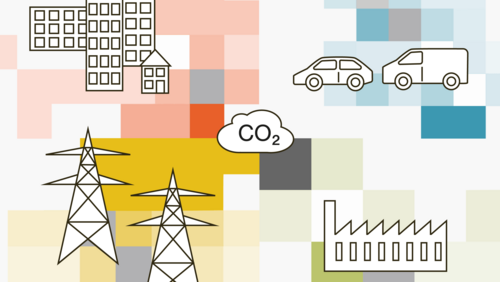
Preventing guesswork in climate policy
Researchers in the CERES project have hit the ground running. The various project teams have already prepared or published several scientific studies—including one in top-tier journal Science that identifies the most effective climate policy measures.
In the CERES project, which is financed by the Werner Siemens Foundation, researchers are analysing which policy instruments can genuinely make a contribution to the sustainable management of global public goods. The main questions address the political measures that would effectively protect our climate, biodiversity, oceans and soils—and what stops policymakers from enacting these measures.
Research in the project is divided into four work packages, all of which have made significant progress in just a short time. Last summer, a research group led by Nicolas Koch from the Potsdam Institute for Climate Impact Research (PIK) and the Mercator Research Institute on Global Commons and Climate Change (MCC) in Berlin, from the division “Machine learning-based ex-post policy evaluation”, even published a study in renowned journal Science that gained international attention.
A lack of good measures
The study compared and evaluated the effectiveness of fifteen hundred climate policy measures that have been enacted over the past twenty-five years—in no less than forty-one countries on six different continents. The team benefitted from a collaboration with the Organisation for Economic Co-operation and Development OECD and drew on data that had not yet been published. For the study, they divided the various measures into four sectors: buildings, electricity, industry and transport.
“We were looking for successful policy interventions that achieved a drop in emissions in one of the sectors by at least five percent,” Nicolas Koch explains. The team discovered that, in the past two decades, only sixty-three cases had met the requirement. Koch believes the rather poor result indicates that climate policy measures are often—or often have to be—tried out without enough solid scientific evidence.
However, there’s also good news: successful policy measures can have a strong impact. The analysis demonstrated that effective policy packages reduced targeted emissions by nineteen percent on average. Some—like the instrument mix in the UK’s electricity sector—achieved a reduction of forty to fifty percent within just a few years.
Policy mixes make the grade
The researchers identified interesting and significant features shared by all sixty-three success stories: for instance, in not one single case did a ban alone—of coal-fired power plants, for example, or combustion engine cars—lead to a meaningful emission reduction. “Major reductions in emissions were found only when several measures were introduced at the same time,” Nicolas Koch relates. Concerning the electricity sector in the UK, policy makers set a minimum carbon price and combined this measure with a government programme to foster renewable energies and a timetable for phasing out coal-fired power generation, which is particularly detrimental to the environment.
The study also revealed notable differences between industrialised and developing or emerging countries, depending on the sector. In the electricity sector, for example, pricing instruments in developing countries yielded only negligible reductions in emissions, probably because their electricity markets operate very differently. “In these countries we tended to see a positive effect brought about by subsidies and regulations like quotas for the electricity mix,” Koch says.
The CERES study is the largest-ever evaluation of climate action measures that is based on established statistical methods. As a result, it closes part of the evidence gap that gave governments no other choice than taking a stab in the dark when setting policy. As part of this effort, Nicolas Koch and his team have developed an interactive web tool where climate protection officers and other decision-makers can study the sixty-three effective interventions and incorporate them into their own strategies and projects.
Other studies in the pipeline
Indeed, providing policymakers and industry actors with information critical to the sustainable management of global public goods is a declared aim in the CERES project. There are plenty of approaches that can be taken to achieve their goal, as evidenced by the many other papers that the team either prepared or published last year. As just one example, an article exploring the impacts of VAT reform on EU foodstuffs has been submitted.
Other examples include an investigation that aims to quantify the existential risks of global warming as well as a study presented at a workshop that demonstrates how our perceptions and behaviours are influenced by the ways in which climate change is portrayed. And finally, a publication on differences between how younger and older people view climate change is currently in the home straight.



